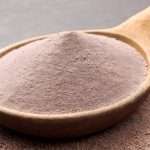Brown sugar is often perceived as a healthier alternative to white sugar due to its slightly more natural appearance and minimal processing. But is it a better choice for your health? In this comprehensive blog post, we’ll delve into the nutritional profile of brown sugar, compare it to white sugar, and explore the potential health impacts of its consumption.
Brown sugar is a type of sugar that retains some of the molasses from the sugarcane or sugar beet it’s derived from. This molasses gives brown sugar its distinctive color and flavor. There are two main types of brown sugar:
- Light Brown Sugar: Contains a lower amount of molasses.
- Dark Brown Sugar: Contains more molasses, giving it a stronger flavor and darker color.
Quick Summary
Brown sugar is not inherently bad, but it’s still sugar. Consume in moderation as part of a balanced diet. It has similar calories to white sugar.
Is Brown Sugar Toxic to Your Health?
To determine if brown sugar is bad for you, it’s important to break down its nutritional content and health implications and compare it to other types of sugar. Here’s a detailed step-by-step explanation:
Blood Sugar Levels
Brown sugar affects blood sugar levels in much the same way as white sugar. Both sugars are rapidly absorbed into the bloodstream, leading to spikes in blood glucose levels.
Frequent consumption of high-sugar foods can contribute to insulin resistance and increased risk of type 2 diabetes.
Weight Gain
Excessive consumption of any type of sugar, including brown sugar, can lead to weight gain. High sugar intake contributes to an excess calorie intake, which can accumulate fat, particularly around the abdominal area.
Weight gain from high sugar consumption is associated with various health issues, including heart disease and metabolic syndrome.
Tooth Decay
Brown sugar, like white sugar, contributes to tooth decay. The bacteria in your mouth feed on sugar and produce acid, which erodes tooth enamel and leads to cavities.
The molasses in brown sugar doesn’t significantly alter this process, making it just as harmful to dental health.
Nutritional Value
While brown sugar contains trace amounts of minerals due to the molasses, the quantities are so small that they don’t provide meaningful nutritional benefits.
The main health concerns of brown sugar come from its sugar rather than mineral content.
Digestive Health
The molasses in brown sugar provides minor benefits for digestive health, as it contains small amounts of fiber.
However, the fiber content is minimal and unlikely to impact digestive health when consumed in typical quantities significantly.
Nutritional Profile
Composition: Brown sugar is essentially white sugar with molasses added back into it. This gives it a distinct color and flavor. The nutritional difference between brown sugar and white sugar is minimal:
Calories: Brown and white sugar have similar caloric values—about 52 calories per tablespoon of brown sugar compared to 49 calories for white sugar.
Carbohydrates: Both sugars contain nearly the same amount of carbohydrates, approximately 13.8 grams per tablespoon for brown sugar and 12.6 grams for white sugar.
Minerals: Brown sugar contains small amounts of minerals such as calcium, potassium, iron, and magnesium due to the molasses. However, these quantities are minimal and do not offer significant health benefits.
Brown Sugar and Its Potential Benefits
While brown sugar may not be a “health food,” it does have a few potential benefits compared to white sugar:
Trace Minerals: As mentioned earlier, brown sugar contains small amounts of minerals like iron, calcium, and magnesium, which are absent in white sugar.
Flavor Profile: Many people prefer the richer, more complex flavor of brown sugar over the more neutral taste of white sugar.
Potential Antioxidant Properties: Some research suggests that the molasses content in brown sugar may provide a small amount of antioxidants, though the overall impact is minimal.
The Potential Drawbacks of Consuming Brown Sugar
Despite the minor differences, brown sugar still shares many of the same drawbacks as white sugar:
High in Calories and Carbohydrates: Both white and brown sugar are high in calories and carbohydrates, which can contribute to weight gain and other health issues if consumed in excess.
Potential Impact on Blood Sugar Levels: As mentioned earlier, brown sugar can still cause rapid spikes in blood sugar levels, which can be particularly problematic for individuals with diabetes or those trying to manage their blood sugar.
Potential Dental Issues: The acidity and stickiness of brown sugar can potentially contribute to the development of cavities and other dental problems.
How to Use Brown Sugar in a Healthy Way?
While brown sugar is not a “health food,” it can be enjoyed in moderation as part of a healthy diet. Here are some tips for using brown sugar in a healthy way:
Limit Portion Sizes: Be mindful of how much brown sugar you use, and stick to the recommended serving sizes.
Substitute with Healthier Alternatives: To reduce your overall sugar intake, use alternative sweeteners like honey, maple syrup, or fresh or dried fruit.
Focus on Whole, Unprocessed Foods: Minimize your consumption of processed foods and baked goods that contain added sugars, including brown sugar.
Practice Good Oral Hygiene: If you consume brown sugar, brush and floss regularly to maintain good dental health.
If you want to make healthier choices regarding sugar, I encourage you to explore our collection of low-sugar and sugar-free recipes. These options can help satisfy your sweet tooth while supporting overall health and wellness. Check them out today!
Healthier Alternatives to Brown Sugar
If you’re looking to reduce your sugar intake, consider these healthier alternatives:
Stevia: A natural, zero-calorie sweetener derived from the stevia plant. It doesn’t raise blood sugar levels and is a good option for diabetes patients.
Honey contains some vitamins and minerals and has a lower glycemic index than sugar, but due to its high sugar content, it should still be consumed in moderation.
Maple Syrup: This provides some nutrients like manganese and zinc and has a lower glycemic index than refined sugar, but it is still high in sugar.
Agave Nectar: A plant-based sweetener with a low glycemic index but high fructose, which can be a concern when consumed in excess.
Conclusion
In conclusion, while brown sugar may have a slightly more favorable nutritional profile than white sugar, the differences are relatively minor. Both types of sugar should be consumed in moderation as part of a balanced and healthy diet.
The key is to be mindful of your overall sugar intake, regardless of the source. By making informed choices and incorporating a variety of healthy, whole foods into your diet, you can enjoy the occasional indulgence of brown sugar while prioritizing your long-term health and well-being.



